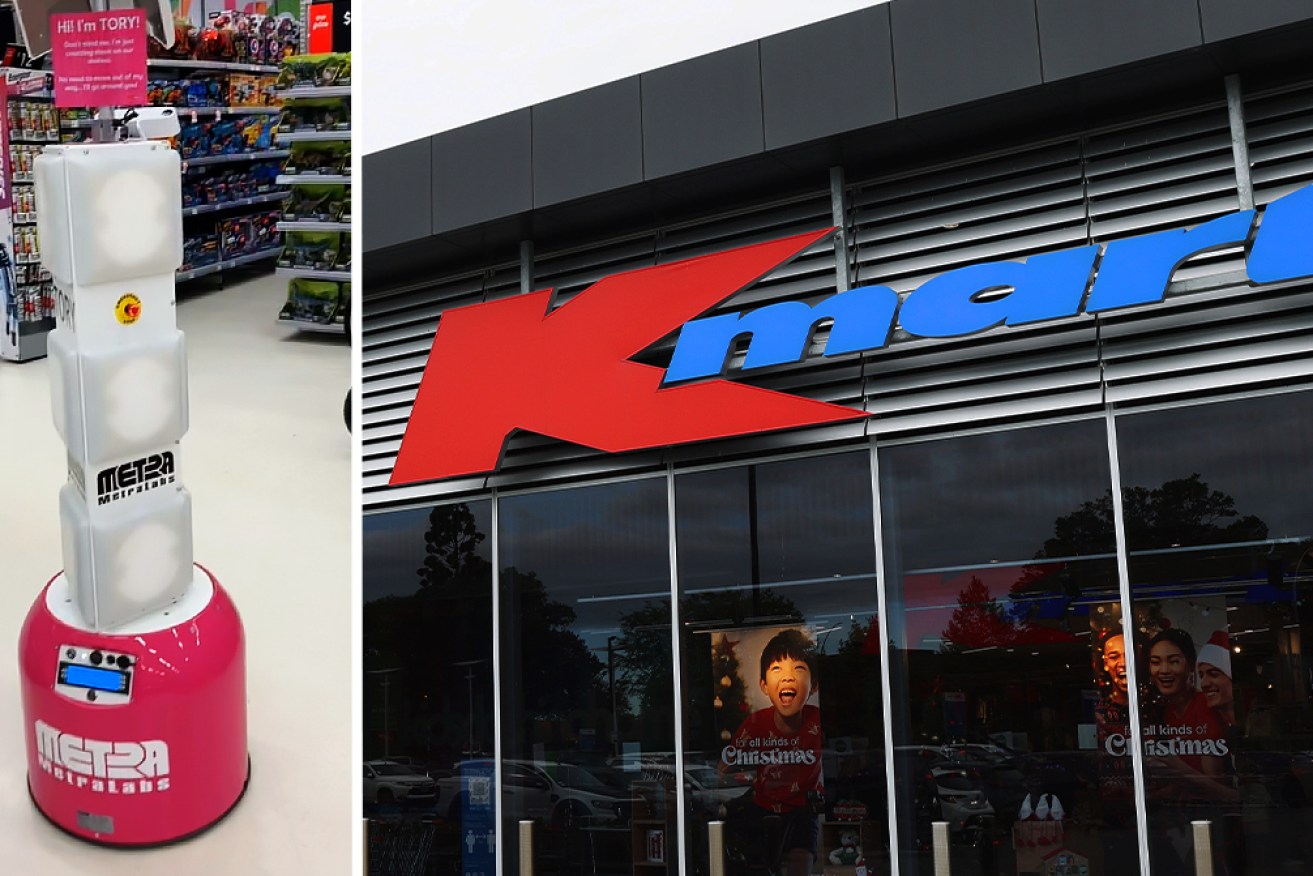Australians willing to trust retail robots, researcher says


Kmart has begun rolling out robots in its stores. Photo: TikTok/RiaKia82, Getty
Artificial intelligence is coming to a retail store near you, and new research suggests Australians might actually be fine with that.
Consumers are prepared to trust the new wave of robots in restaurants and retail stores, even if their presence is a bit of a “novelty” at first, Professor Sanjit Roy from Edith Cowan University, said.
Roy recounted his own experience visiting a restaurant outside Perth with his family, when a robot waiter brought their food from the kitchen.
“We had a surprise, we ordered the food and after 15 minutes there was a robot that brought the food out on a tray,” Roy said.
“You take the tray and press a button, and the robot goes to the kitchen.”
Roy’s academic work is exploring the budding relationship between shoppers and customer service robots as major retailers invest in them.
Tweet from @vivikikuchi
Australia’s two biggest retail giants, Woolworths Group and Wesfarmers, are experimenting with in-store robots and using AI technology as part of their customer service.
Telecommunications giant Telstra is using generative AI with call centre staff.
What about human workers?
These transformations raise questions about the fate of human workers in these industries, with the IMF predicting up to 40 per cent of the global workforce will be exposed to AI.
Roy said technology should “augment, not substitute” service workers in ways that deliver benefits for consumers.
“Social robots have been shown to act as entertainers, social enablers, friends, and mentors to customers, which suggests that robots can be perceived as supportive, emotional, and hence social actors,” he said.
The research paper canvassed how consumers assess the value of robots, and what factors influence whether or not they trust them.
A key finding is that shoppers are prepared to trust robots in stores if they’re proving to be useful, and that if they are, this trust will increase over time.
In other words, if there are specific queries a customer service robot can help with more quickly than needing to track down a human worker, you’re likely to start seeing plenty more around.
“A series of flawless transactions ultimately leads to a situation or a state of inertia where customers look forward to interacting with the social robots,” Roy said.
Automated retail workers won’t be able to do everything well, though, with the research predicting that some industries will adopt them at a faster pace than others.
Tweet from @andrewpprice
Simple tasks at first
Roy predicts businesses will be “cautious” with the rollout of robots in their stores, and that more mundane and simple tasks – such as bringing food out from a restaurant kitchen – will be partially automated first.
Financial services are also an area where automation could take off because speed and accuracy are valued by customers at the bank.
“In the context of retail banking, utilitarian aspects like the successful completion of a transaction, often matter more than having a friendly chat,” Roy said.
Another potential application could be greeters in stores like Bunnings, where people are employed to greet shoppers.
But accuracy will be key, Roy said, because in trials of similar tech overseas one retailer dumped their robot worker after it made mistakes.








